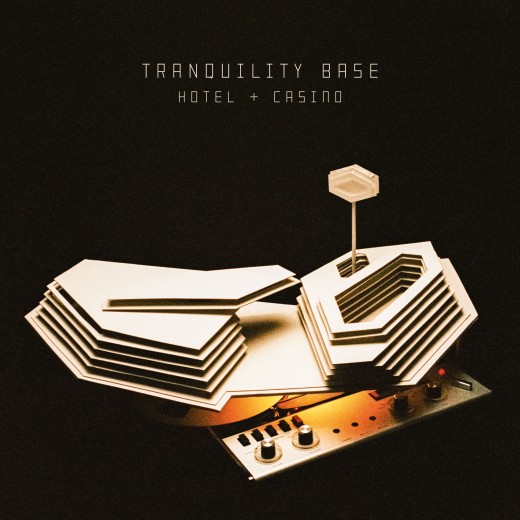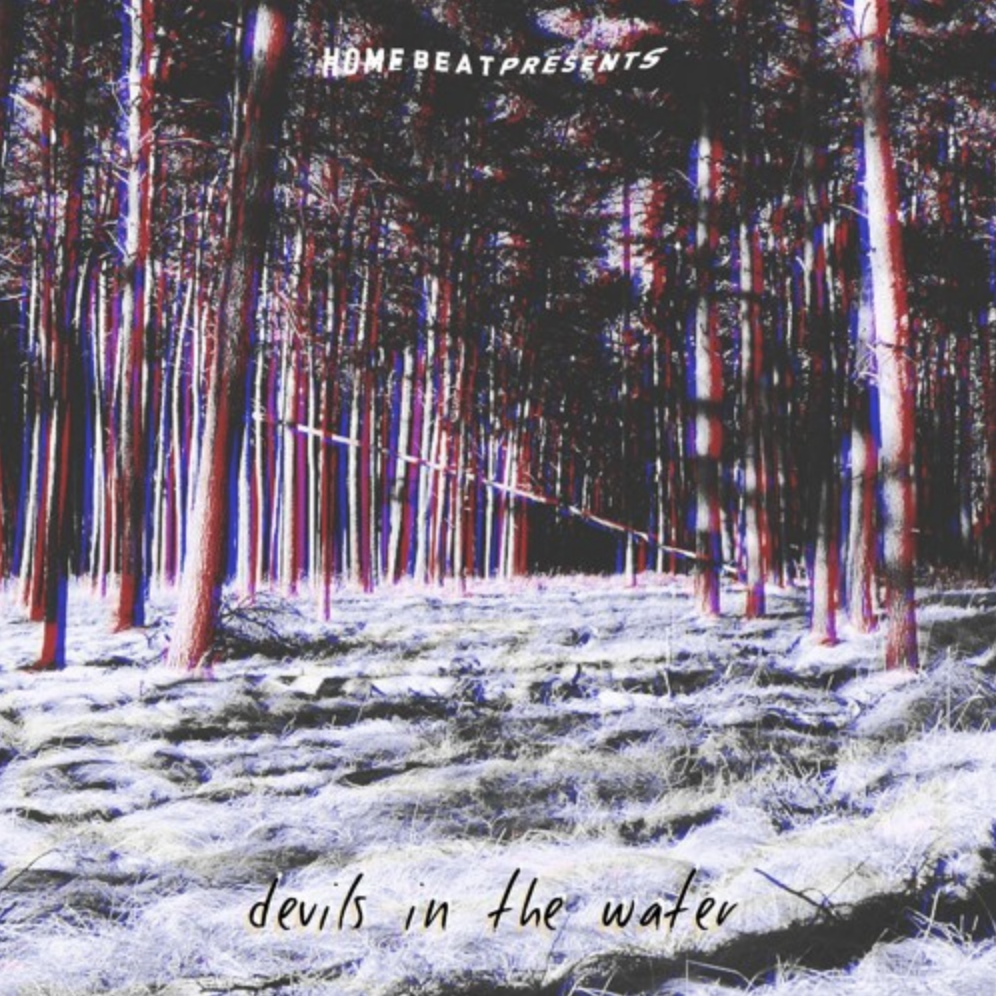Of all the shade that can be thrown against the Arctic Monkeys, you couldn’t say they’ve rested on their laurels. At the peak of their popularity, they pivoted from the comfortable rut of their indie roots into the muddier, murky world of Josh Homme-inspired desert rock. With 2013’s AM, they wholehearted embraced sounds from 1990s R&B and throwback blues. The thing with these genre excursions though is that they’ve always retained a thread of being just four Northern boys chancing their arms.
With their latest LP, Tranquility Base Hotel & Casino, there’s not a shred of any previous incarnation of the group present. It’s less that they’ve thrown out the rulebook, and more that they’ve shredded it, compressed the remains into card and used it to craft the architectural curiosity which adorns the front cover. Compared to ‘Teddy Picker’, ‘Crying Lightning’ and ‘The Hellcat Spangled Shalalala’, the contents of this record belong to an entirely different galaxy. The influence of The Libertines, The Smiths and Kyuss have been replaced with the likes of Jacques Brel, Air and Serge Gainsbourg. The focus here is on atmosphere and mood over melody, with its lilting jazzy piano and otherworldly instrumentation. This album sounds like the house band for a tacky Martian gentlemen’s club.
In the face of such an unexpected turn, there is a level of respect to be given to this record. Experimentation of this scope is quite rare and it deserves commendation regardless of the quality. Alex Turner and co. have attempted a Kid A-esque about-face twist and we should appreciate the effort they’ve put in. Unfortunately, that’s really all that one can appreciate, as Tranquility Base Hotel & Casino is, frankly, not good by anyone’s metric.
Simply put, this is not a worthwhile record. There are problems throughout but predominantly they come down to the fact that the songwriting isn’t up to snuff. Turner apparently first conceived of the album by having fun with a Steinway piano he had been gifted for his 30th birthday. He’s been very open about his lack of confidence and dexterity with the keys, but for whatever reason inspiration struck and he forged on solo writing and recording the majority of the album himself. This is a part of the problem, as this collection of songs doesn’t feel like Monkeys’ record. It owes much more to Turner’s soundtrack to the film Submarine or the baroque overtones of The Last Shadow Puppets debut LP.
Looking at the liner notes, it becomes clear as to why this is the case. The singer plays the majority of the instruments on every song. Guitarist Jamie Cook features on every track, but the role of the guitar is significantly underplayed. The rhythm section of Nick O’Malley and Matt Helders are barely even present, with the former being absent from a third of the tracks. This creates an awkward tension that the band can’t really resolve. On the one hand, with such a single voice leading the charge so completely, there is definitely a cohesion of sound and vision. But on the other hand, the man’s limitations as a songwriter are allowed to fester and lead to some very questionable decisions.
Strange as it is to say, the songs are nowhere nearly as good as they need to be. There’s such a glut of underutilised ideas on display here that it quickly turns frustrating. There are these shapes and ideas that should fit together into this cacophony of wondrous odd, but they remain elusive and unfulfilled. Musically, you got elements of elevator muzak, vaudeville, glam rock and ambient soundscapes pushing and pulling one another, vying for your attention. Yet at no point are the proceedings as interesting as they sound on paper. These tracks needed more gestation or critical voices to help them stand on their own two feet. His absence of confidence with the piano becomes a prominent fixture early in the proceedings as he keeps leaning on the same tricks. These tracks are starting from such a free and unknown position that they really could have gone anywhere they want and it would still fit into a singular vision. But they don’t.
‘American Sports’, ‘Star Treatment’, and ‘Science Fiction’ are just variations on the same theme. The thing is that you can write music on and for instruments that you’re not comfortable with, but you have to approach it differently. Talking Heads’ members swapped to the instrument they least preferred to give ‘This Must Be The Place’ a certain naivety and innocence that seasoned plays have trained themselves out of. Rather than leaning into a mindset like it, it appears as though Turner found a single tone and speed and remained there. As a consequence, there’s a muggy hue to every single song that means that they blend into this amorphous blob. You can get lost in these pieces, but only because you can’t differentiate between them.
At 40 minutes, this experience comes dangerously close to overstaying its welcome. Cut to cut, nothing stands out and by the time the end credits roll around you’d be hard-pressed to find that any piece made any kind of lasting impression. You know you’ve heard something intriguing, sure, but it simply doesn’t sound any good.
Part of that intrigue comes from the influences they’ve adopted. To their credit, they’ve dived head first into them and tried to assimilate as much as possibly. But in doing so, they’ve left themselves at the door. You can appreciate the elements they adopted such as the Jarvis Cocker/Nick Cave croon on the chorus of ‘She Looks Like Fun’, the crisp drums and Air bassline of the title track, or the early Leonard Cohen vibe off of ‘The Ultracheese’, but that’s it. For an LP as distinct as this, you’d think there’d be more personality on display. But even the distinctive Sheffield twang of Turner’s trademark vocal becomes incidental as he dons the guise of Ziggy-era Bowie.
Some of this disappointment may have been offset if there was something meaningful being said. But much similar to the music, the words fuse together into this formless blob of science fiction technology and vague attempts at social commentary. There are some interesting discussions about technological ennui, our communication failures and the ridiculousness of the current political climate on ‘American Sports’, ‘Batphone’ and ‘Golden Trucks’, respectively. But much of this is surface level analysis and feels pretty shallow, especially when compared to what Father John Misty was attempting with last year’s Pure Comedy. There’s no line which stands out as particularly clever or insightful, which is a travesty given that, for many, Turner once had a reasonable claim for the title “voice of the 2000s”. But as with everything else on this record, nothing amounts to anything. Things start and then they end. There are no great truths or new terrains explored. Just a well-intentioned, underbaked mess.
Plus, as petty as it is, the title is awful. Will Murphy






